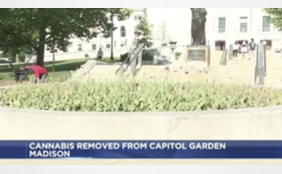Andrea Golan

On June 30, Gov. Gavin Newsom signed budget trailer bill Assembly Bill 195 (AB-195) into law. AB-195 contains several significant reforms to California’s cannabis laws. The most noteworthy changes are outlined below, beginning with the much-anticipated changes to cannabis taxes.
California Cannabis Cultivation Tax Eliminated
The budget trailer bill eliminated the cannabis cultivation tax beginning July 1, 2022. The language provides that, effective July 1, 2022, no cultivation tax on harvested cannabis that enters the commercial market is required if any of the following apply:
- The harvested cannabis was first sold or transferred by a cultivator to a manufacturer on or after July 1, 2022
- The harvested cannabis was first sold or transferred by a cultivator to a distributor on or after July 1, 2022
- The harvested cannabis, or cannabis products containing that harvested cannabis, was first sold or transferred by a microbusiness to a distributor or manufacturer that arranges for laboratory testing
One potential gray area is how the cultivation tax will be applied or apportioned to manufactured cannabis products that are created from harvest batches from both before and after the July 1 transition.
Any cultivation tax collected on cannabis that enters the commercial market on or after July 1, 2022, must be returned to the cultivator that initially paid the cultivation tax or, if unable to be returned to the cultivator, must be paid to CDTFA as excess tax.
California Cannabis Excise Tax Capped at 15% for Three Years
AB-195 also caps the cannabis excise tax at 15% for three fiscal years. Beginning July 1, 2025, the CDTFA must adjust the excise tax rate every two years to a rate that would generate an amount of revenue equivalent to what would have been collected from the cultivation tax (such rate not to exceed 19%).
The bill also places the obligation to collect and remit excise tax on cannabis retailers, rather than on distributors, beginning January 1, 2023. If you are an equity operator, you would be able to infuse a percentage of that excise tax back into your business operation.
Note: CDTFA decreased the mark-up rate from 80% to 75% for the period beginning July 1, 2022 through at least December 31, 2022. Read the CDTFA announcement.
Delivery Data Required to be Reported in Metrc
Another noteworthy change is that retail delivery data will be required to be entered into Metrc by January 1, 2023. The bill directs the DCC to adopt emergency regulations to incorporate delivery into Metrc, including information related to cannabis goods leaving the licensed premises.
Enforcement of Unlicensed Cannabis Activities and Water Diversion/Pollution
The new law also includes some enforcement reforms:
- Increased fines for aiding and abetting unlicensed activity, including landlords who knowingly rent commercial property for unlicensed cannabis activity, including a fine of $10,000 per violation per day
- Authorizes a county counsel to file a civil action relating to unlawful water pollution and unauthorized water diversions due to unlicensed cannabis cultivation on behalf of the state
- Imposes cultivation and excise tax on unlicensed actors and adds an additional penalty in an amount equal to 25% of the amount of tax or $500, whichever is greater.
- Imposes a penalty of $3,500 per day for diversion or use of unlicensed cannabis activities in lieu of the current fines
- Until January 1, 2025, a task force will be established in order to communicate between state and local entities to facilitate cooperation and to enforce applicable state and local laws regulating commercial cannabis operations.
Labor Peace Agreements (LPAs)
Beginning July 1, 2024, the LPA threshold requirement will be lowered from 20 to 10 non-management employees. The bill makes compliance with the terms of an LPA a condition of licensure and gives the DCC authority to suspend, revoke, place on probation or otherwise discipline and fine the licensee for noncompliance.
Benefits for Social Equity Cannabis Businesses
Equity licensees will be able to retain 20% of the excise taxes they collect to reinvest into their businesses. They will also be eligible for a $10,000 tax credit.
$40 Million in Tax Credits for Cannabis Operators
The bill includes $40 million in tax credits, of which $20 million will be earmarked for tax credits for qualified storefront retail (Type 10) and microbusinesses (Type 12) (cannabis retail operators who meet the “high road” criteria), and $20 million for cannabis equity operators. VS will provide the eligibility criteria upon request. The bill allows qualified businesses to claim tax credits of up to $250,000 for qualified expenditures beginning in the 2023 taxable year.
Economic Impact Study
Requires that an economic study be conducted to measure the impacts of tax reform on tax revenues.
Cannabis Retail Access Grant Program
AB-195 establishes a $20 million Cannabis Retail Access Grant Program to encourage cities and counties with existing bans on commercial cannabis retail to implement retailer licensing programs with funding prioritized for jurisdictions that incorporate social equity programs.
[View source.]


















